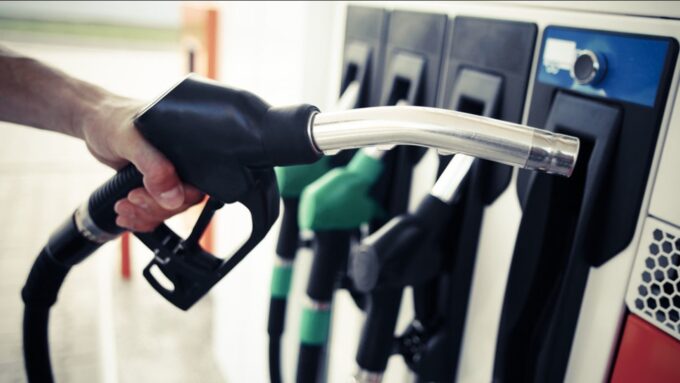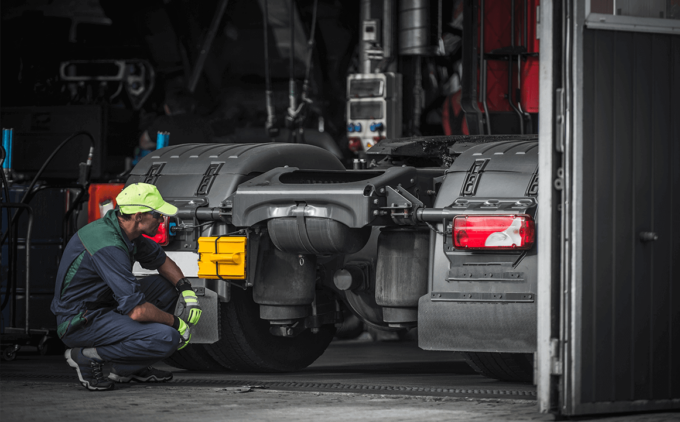Depending on the industry, fleet costs can account for as much as a quarter of your businesses total operating costs. While these costs in general are unavoidable in the logistics industry, they can be manipulated to support cost savings as much as possible. Think about the actions that you are taking now to reduce expenses, and then continue that train of thought to what more you can be doing. There are going to be best practices in virtually every category for you to consider and adopt when they make sense for your company. As consumerism moves towards a largely online market, the need for fleet-based companies is only going to increase. A reduction in spending can mean an opportunity to grow on a quicker timeline than perhaps your original business plan allotted for.
Software Solutions

Source: beyondvela.com
This might feel like a solution that does not equate to cost savings, but even though there will likely be an upfront cost, once that is recouped, you are more than likely to see savings across the board. Technology exists to make getting tasks done easier. By adding in software solutions, your fleet can operate on a modernized scale, and work in the most efficient manner possible.
You can review this guide to help you choose the best fleet management software. Not all programs are created equal and doing your research can prevent you from spending business dollars on a package that does not make sense for your specific needs. Some initial categories to consider when determining what you will need out of a program like this are, GPS tracking, maintenance diagnostics, driver to dispatcher communication, route reporting, and safe driving monitoring.
Telematics are going to reduce your spending because they are going to show you in black and what the habits of the people operating your business both inside and outside the office. By managing driver behavior as well as dispatcher strategies you can make sure that productivity levels are where they need to be to turn a profit and reduce your risk of overspending to compensate for a misjudged situation.
Fuel Cost Control

Source: abc11.com
You will never be able to control the actual price of gas, but what you can control is how you approach the purchase of it. Establish a driver policy to make your team aware of which fuel type is most appropriate for their vehicle. Since they are more than likely going to the ones filling up each day, you do not want to find out the hard way that someone has been putting in premium when it was not needed, simply because of a lack of communication.
You might even consider a program that can help detect fuel fraud. Many major gas stations have the opportunity for you to start a fleet account that can help in monitoring who is spending what, and how often. Digital receipts are even available in some cases, so you do not have to rely on a driver to collect and turn in a physical receipt to be able to track their spending. By not using traditional credit cards on the road, you are also working towards protecting yourself from identify theft and other types of fraud.
Maintenance Programs

Source: fleetio.com
Here is another area where you are going to have to put a lot of faith in your road staff. As the people behind the wheel of your vehicles each and every day, these are going to be the individuals that will be able to notice a sound that was not there the day before, or a weird jerk of the wheel that is new. While this cannot account for your entire maintenance strategy do not discount how far educating your drivers on the importance of safety checks can go.
Monitor and manage preventative maintenance compliance as well. It is going to be essential to either have a staff mechanic or someone outsourced that can place your fleet as priority whenever needed. A truck taken off the road can cost you tons of money, not just in repairs, but in earnings lost by not having that truck be able to work for any length of time. If you have a process in place to help catch small problems before they grow into big ones, this can help you reduce the number of times you need to place a vehicle out of service.
Leasing vs Buying

Source: fleetio.com
Leasing the vehicles that build up your fleet instead of buying them outright can certainly impact your overall financials. Before you expand your fleet, regardless of if you decide to buy or lease, you need to ask yourself if you have enough capital to fund your current and future vehicle needs? How will my cashflow be impacted throughout this vehicle’s lifespan? Which option provides the best ROI?
Thinking about these topics is going to allow the best answer for your business to present itself to you. Leasing a vehicle can help you reduce costs, simply because of the age of the vehicle. It is not a secret that newer cars need less maintenance and by deciding to outfit your business with modern vehicles you are probably also reducing your spending on trips to the mechanic.
Choose the Best Forecasting Method
Sometimes when you look at your annual budget and end of the year numbers what you are looking at might be the product of a forecasting method that is not the best fit for your business. Proper expense forecasting is critical to provide an accurate estimation of ongoing operational costs, and reporting figures as they relate to saved costs, and profits earned. Keep in mind too that you are not married to one method over the other. If you have used one in the past that has proven not to compliment your business consider making a change and then analyzing the differences to make your final decision.
Use fixed costs to your advantage here. There are so many things that you cannot control that are going to fluctuate with no real cadence or predictability. So instead of putting energy into those elements think about the parts of your business spending that you can control. Once you have a handle on that, some of the unexpected costs will be more palatable as you have created a larger cushion for them.







